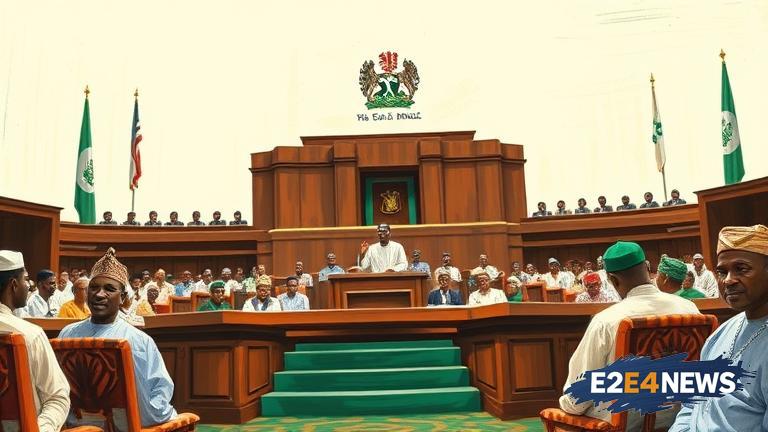The House of Representatives in Nigeria has initiated a move to create a constitutional role for traditional rulers in the country. This development is aimed at harnessing the influence and expertise of traditional rulers in the governance of Nigeria. The move is seen as a significant step towards recognizing the importance of traditional institutions in the country’s development. Traditional rulers have long been revered for their wisdom, knowledge, and ability to bring people together. By creating a constitutional role for them, the House of Representatives hopes to tap into these strengths and use them for the benefit of the nation. The proposed role is expected to include advisory functions, conflict resolution, and community development. Traditional rulers will be able to provide valuable insights and guidance to government officials, helping to inform policy decisions and ensure that they are in the best interest of the people. Additionally, their involvement in conflict resolution will help to reduce tensions and promote peace and stability in the country. The move has been welcomed by many Nigerians, who see it as a positive step towards recognizing the importance of traditional institutions. However, some have expressed concerns about the potential implications of creating a constitutional role for traditional rulers. They argue that it could lead to a blurring of the lines between traditional and modern governance systems, potentially creating confusion and conflict. Despite these concerns, the House of Representatives is pushing forward with the plan, believing that it has the potential to bring significant benefits to the country. The move is also seen as a way to promote national unity and cohesion, by recognizing the diversity of traditional institutions and the important role they play in Nigerian society. Traditional rulers have a deep understanding of the cultural, social, and economic nuances of their communities, making them well-placed to provide guidance and support. By leveraging this expertise, the government hopes to develop more effective policies and programs that meet the needs of the people. The creation of a constitutional role for traditional rulers is also expected to help to promote economic development, by providing a framework for traditional rulers to contribute to decision-making processes. This could include providing guidance on issues such as land use, resource management, and infrastructure development. Furthermore, the move is seen as a way to strengthen the relationship between the government and traditional institutions, promoting a more collaborative and inclusive approach to governance. The House of Representatives has announced that it will be conducting consultations with traditional rulers, community leaders, and other stakeholders to ensure that the proposed role is effective and beneficial to all. The consultations will provide an opportunity for feedback and input, helping to shape the final proposal and ensure that it meets the needs of the country. Overall, the move to create a constitutional role for traditional rulers in Nigeria is a significant development, with the potential to bring numerous benefits to the country. It recognizes the importance of traditional institutions and the valuable contributions they can make to governance and development. As the proposal moves forward, it will be important to monitor its progress and ensure that it is implemented in a way that is effective, inclusive, and beneficial to all Nigerians. The success of the proposal will depend on the ability of the government and traditional institutions to work together, leveraging their respective strengths and expertise to drive positive change. With the right approach, the creation of a constitutional role for traditional rulers has the potential to be a major step forward for Nigeria, promoting national unity, cohesion, and development. The proposal is a testament to the country’s commitment to recognizing and valuing its rich cultural heritage, and to using this heritage as a foundation for building a brighter future. As Nigeria continues to evolve and grow, the importance of traditional institutions will only continue to increase, making the creation of a constitutional role for traditional rulers a timely and necessary development. The move is also expected to have a positive impact on the country’s international relations, as it demonstrates a commitment to preserving and promoting cultural diversity. Nigeria’s traditional institutions are an important part of its identity, and by recognizing their importance, the country is able to showcase its unique cultural heritage to the world. In conclusion, the proposal to create a constitutional role for traditional rulers in Nigeria is a significant and welcome development, with the potential to bring numerous benefits to the country. It recognizes the importance of traditional institutions and the valuable contributions they can make to governance and development, and provides a framework for traditional rulers to contribute to decision-making processes. As the proposal moves forward, it will be important to monitor its progress and ensure that it is implemented in a way that is effective, inclusive, and beneficial to all Nigerians.
